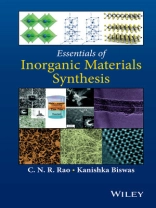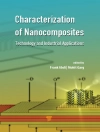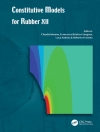This compact handbook describes all the important methods of
synthesis employed today for synthesizing inorganic
materials.
Some features:
* Focuses on modern inorganic materials with applications in
nanotechnology, energy materials, and sustainability
* Synthesis is a crucial component of materials science and
technology; this book provides a simple introduction as well as an
updated description of methods
* Written in a very simple style, providing references to the
literature to get details of the methods of preparation when
required
Innehållsförteckning
Author Biographies vii
Preface ix
1 Introduction 1
2 Common Reactions Employed in Synthesis 7
2.1 Soft-Chemistry Routes, 12
3 Ceramic Methods 17
4 Decomposition of Precursor Compounds 23
5 Combustion Synthesis 33
6 Arc and Skull Methods 37
7 Reactions at High Pressures 41
8 Mechanochemical and Sonochemical Methods 47
8.1 Mechanochemistry, 47
8.2 Sonochemistry, 50
9 Use of Microwaves 53
10 Soft Chemistry Routes 57
10.1 Topochemical Reactions, 57
10.2 Intercalation Chemistry, 64
10.3 Ion Exchange Reactions, 73
10.4 Use of Fluxes, 78
10.5 Sol-Gel Synthesis, 81
10.6 Electrochemical Methods, 86
10.7 Hydrothermal, Solvothermal and Ionothermal Synthesis, 90
11 Nebulized Spray Pyrolysis 97
12 Chemical Vapour Deposition and Atomic Layer Deposition 103
13 Nanomaterials 107
13.1 Nanoparticles, 107
13.2 Core-Shell Nanocrystals, 116
13.3 Nanowires, 119
13.4 Inorganic Nanotubes, 133
13.5 Graphene-like Structures of Layered Inorganic Materials, 137
14 Materials 151
14.1 Metal Borides, Carbides and Nitrides, 151
14.2 Metal Chalcogenides, 157
14.3 Metal Halides, 162
14.4 Metal Silicides and Phosphides, 167
14.5 Intergrowth Structures and Misfit Compounds, 171
14.5.1 Intergrowth structures, 171
14.5.2 Misfit Compounds, 177
14.6 Intermetallic Compounds, 178
14.7 Superconducting Compounds, 182
14.8 Porous Materials, 191
14.8.1 Mesoporous Silica Materials, 191
14.8.2 Aluminophosphates, 194
14.8.3 Metal Organic Frameworks (MOFs), 196
Index 201
Om författaren
C.N.R. Rao, D.Sc., Ph.D, is the National Research Professor and Linus Pauling Research Professor at the Jawaharlal Nehru Centre for Advanced Scientific Research and Honorary Professor at the Indian Institute of Science, at Bangalore, India. He is a fellow of the Royal Society, London, a foreign associate of the US National Academy of Sciences and a member of many other science academies. He is the recipient of the Einstein Gold Medal of UNESCO, the Hughes and Royal Medals of the Royal Society, the August Wilhelm von Hofmann medal of the German Chemical Society, the Dan David Prize and the Illy Trieste Science prize for materials research and the first India Science Prize.
Kanishka Biswas, Ph.D, is Ramanujan Fellow in the New Chemistry Unit of Jawaharlal Nehru Centre for Advanced Scientific Research, Bangalore, India. He is an Associate of Indian Academy of Sciences, Bangalore. He is pursuing research in solid state chemistry of metal chalcogenides and thermoelectric ’waste heat to electrical energy conversion’.












